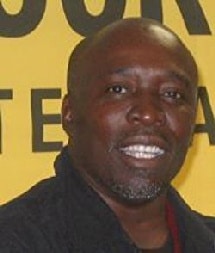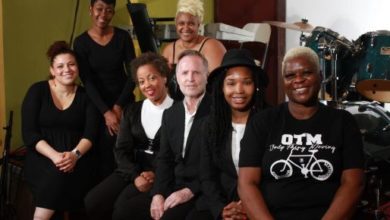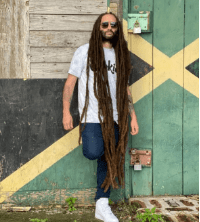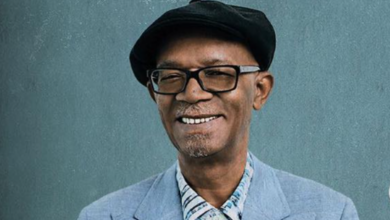JN Foundation Funds Research of Jamaican Classical Composers
KINGSTON, Jamaica – Often celebrated for its rich, diverse indigenous musical forms, reggae, dancehall, mento, ska and others, the depth of the contribution of Jamaican composers to the classical genre remains nearly undocumented and unexplored by music scholars and pundits.
The country has, in fact, made a significant contribution to classical compositions that have emerged from the Caribbean Region and the wider Americas, notes Rosina Moder, Executive Director of Music Unites Jamaica Foundation, with its earliest known contribution dating back to the late Baroque period of European classical music.
She was speaking during a signing of the contract with Music Unites Foundation and the JN Foundation, at the JNBS Chief Office in Half-Way-Tree, St. Andrew, earlier this month.
“Jamaica doesn’t only have people who play classical music; but people who have composed classical music,” she explained, pointing to the earliest known composer, Samuel Felsted, who served as Organist of the St. Andrew Parish Church in the mid 1700s.
Miss Moder, an Austrian-born classically trained recorder player, who relocated to Jamaica in 1985, is undertaking a two-year research project, with the assistance of the Jamaica National Building Society Foundation (JN Foundation) to document the works and life of the nation’s classical and patriotic composers and composers of church, dance and theatre music.
“There is so much about our musical history that we still don’t know,” commented Miss Moder, as she highlighted the work of Felsted, noting that while he was an organist at the St. Andrew Parish Church, he composed the oratorio Jonah, the first ever to be produced in the Americas.
“He is neither American, Mexican, Argentinian nor Bolivian. He is Jamaican,” Miss Moder said emphatically.
Felsted’s oratorio was not only the first oratorio to be produced in the Americas, but played another significant role in regional history. Written in 1773 and later published in 1775 in London by Longman, Lukey and Broderip, Jonah had some 200 subscribers and was scheduled to be performed at the inauguration of the first President of the United States of America, George Washington, in 1789.
There are other notable early Jamaican composers of classical music, Miss Moder pointed out, such as Sir Frederick Hymen Cowen, who was born at 90 Duke Street in Kingston in 1852, and described as the island’s Beethoven.
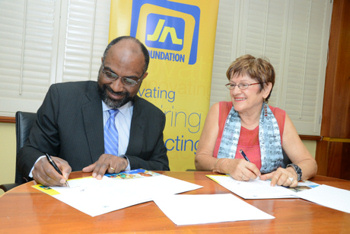
Rosina Moder, Executive Director of Music Unites Foundation, observes as Earl Jarrett, Chairman of the Jamaica National Building Society Foundation, signs a contract to provide funding to Music Unites Foundation to carry out research on Jamaican classical and patriotic composers of music as well as composers of church, dance and theatre music. The contract was signed recently at the Jamaica National Building Society’s chief office in Half-Way-Tree, St. Andrew. The project is a two-year initiative.
“At four years old Frederic was brought to England, where his father became treasurer to Her Majesty’s Opera and his first published composition, Minna-waltz, appeared when he was only six years old” Miss Moder said. It is documented that he also wrote, among other pieces, nine symphonies, 11 concertos, an opera, two operettas and returned to the island in the early 1930s to conduct a concert.
There was also the late Don Shirley who died last month in New York, on April 6.
Don Shirley had a very illustrious career as a musician, starting as a prodigy at the Leningrad Conservatory of Music in St. Petersburg, Russia, where he studied composition when he was about nine years old. He performed for many years as a classical pianist with the Boston Pops; and appeared as soloist for the Detroit Symphony, Chicago Symphony and the Cleveland Orchestra.
In all, Don Shirley made about 60 classical and jazz recordings and composed music for piano, violin, the organ and the cello. He earned doctorates in music, psychology and religious science, and worked with children with behavioural problems through classical music. It is said that he spoke some eight languages.
“There is also the late Dr. Olive Lewin,” Miss Moder continued. “Her work, as a folklorist, has been studied; but, not her work as a composer as she was also a very prolific composer of folk mass and other compositions.”
The other more than 20 composers identified for study under the project will include—Oswald Russel, Eleanor Alberga, Shirley Thompson, Peter Ashbourne, Marjorie Whylie, Paulette Bellamy, Noel Dexter, Lloyd Hall, Clyde Hoyte, Astley Clerk and Mapletoffe Poulle; as well as the younger generation of contemporary composers, such as Jon Williams, Andrew Marshall and Franklin Halliburton.
Miss Moder said the research will also look closely at the works of Jamaican female composers as the country may have a higher percentage of women composers than many other countries in the world.
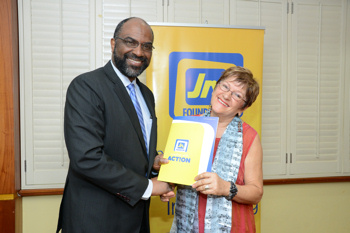
Earl Jarrett, hands a copy of a signed contract to Rosina Moder, Exceutive Director of Music Unites Foundation to provide funding for a two-year initiative to research and document the works and life of Jamaican composers of classical and patriotic music, as well as composers of church, dance and theatre music. The contract was signed recently at the Jamaica National Building Society’s chief office in Half-Way-Tree, St. Andrew.
Acknowledging the need for greater research and documentation of Jamaican music, Earl Jarrett, Chairman of the JN Foundation said, “There is still much to be learnt about us, as a people, which we still have not yet discovered. That is why it is important for us to continuously research and document our history and culture in an effort, not only to preserve, but to enrich who we are and to create a platform for the type of development we envision for our country.”
On completion, it is intended that samples of the research will be on display in the libraries of tertiary institutions across the island; and it is hoped the works will be archived in the West Indies and Special Collections Unit of the library at The University of the West Indies, Mona. A handbook will also be produced and distributed to libraries and schools with summaries of the life and works of the composers.
“I am grateful that Jamaica National is taking this on, because it is ten years since we started writing these proposals for the composers’ archive; and now we are being taken seriously,” Miss Moder continued, as she emphasised the need to document and preserve all forms of the country’s musical legacy.
“It’s amazing what is here. The first oratorio in the entire Americas? The culture is rich, let’s preserve it,” she declared.

